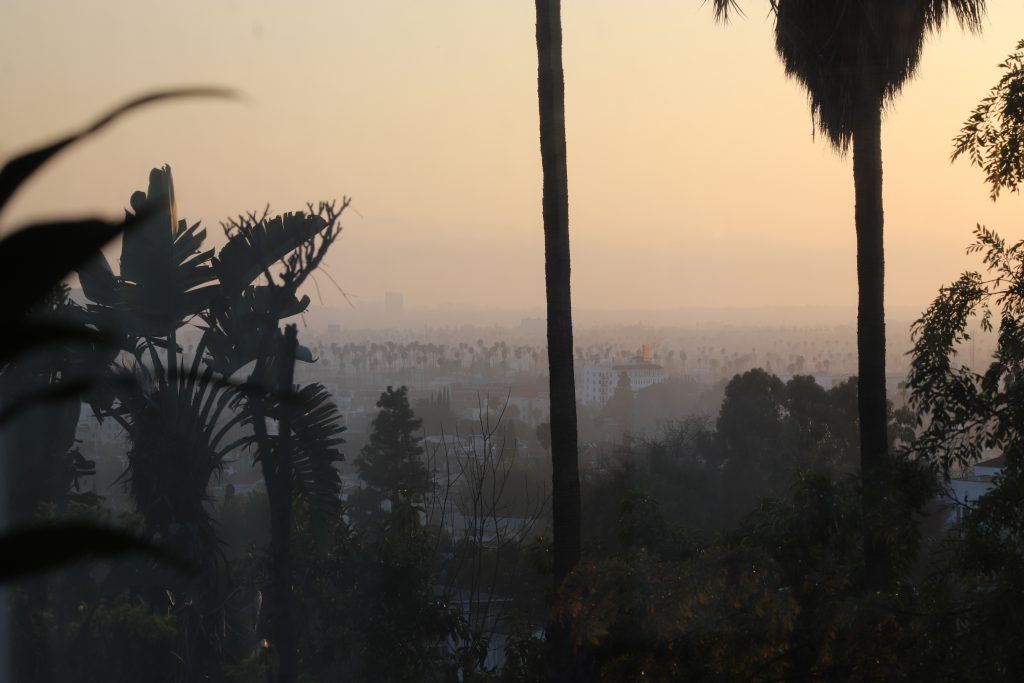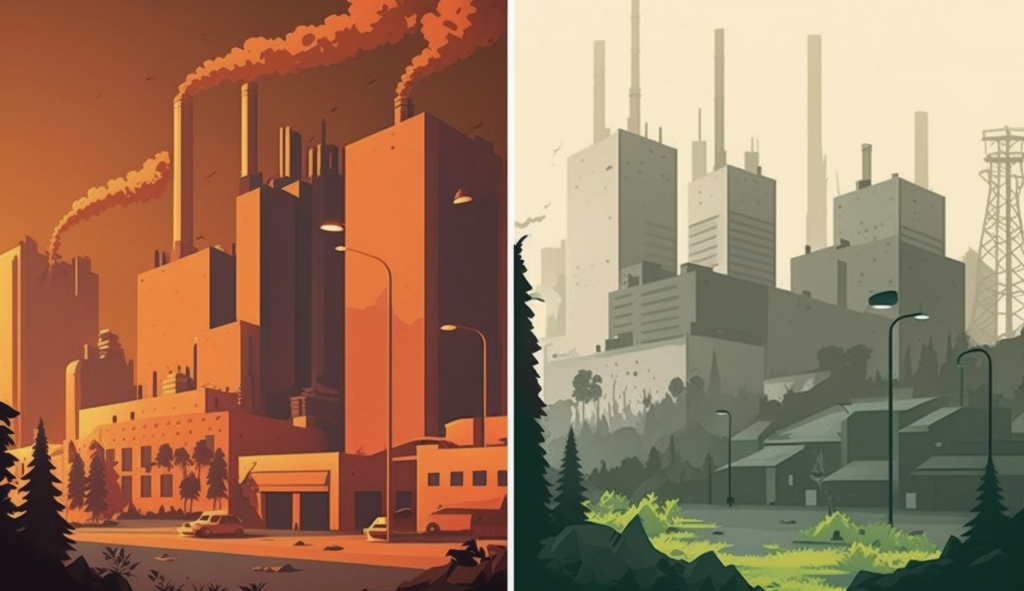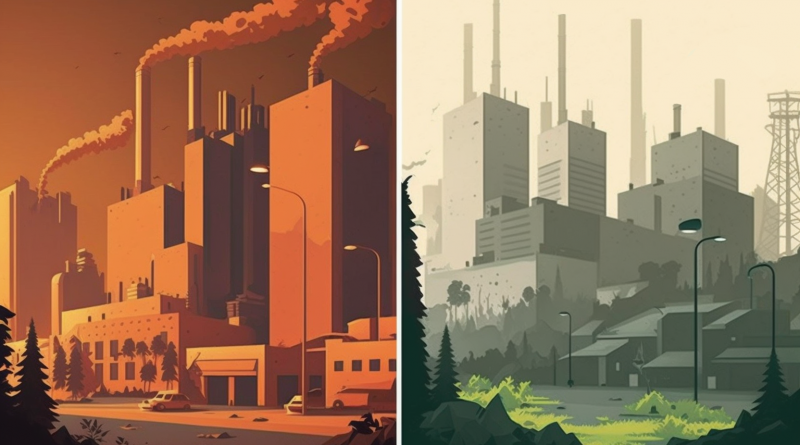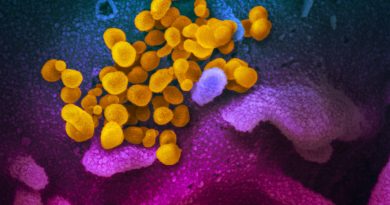What IS An Ozone Action Day, Anyway?! I Thought We Fixed The Ozone!
If you’re in Southeast Michigan, you may have noticed this week that we’ve already had two ozone action days, also known as an air quality alert day. What does this mean? And why is it always when the weather gets warm? Perhaps confusingly for anyone who grew up in the 1990s and was ever so frequently warned about the dangers of the damage to the stratospheric ozone layer from a certain family of hydrocarbons, this type of ozone refers to ground-level ozone, which is formed as a product of the reactions between volatile organic compounds (VOCs) and nitrogen oxides (abbreviated as NOx, which, for most intents and purposes, includes two chemicals, nitric oxide and nitrogen dioxide). Fret not, though– there are a lot of things we can do to reduce the occurrence of these chemicals in the atmosphere.

Why Do Ozone Action Days Seem To Occur So Often In The Summer?
Great question! There are a few reasons. First, more sunlight increase the rate of ozone formation, which is a photochemical process. More sunlight and the earth generally being closer to the sun– I mean, that is, if you believe in that whole “Gallilean Universe” thing- also means more heat, which similarly increases this rate. Summer often brings more stable but stagnant air systems. Less atmospheric mixing means that certain pollutants can accumulate in higher quantities. And, finally, there’s often an increase in the summer of emissions from things like gas-powered lawn equipment and vehicle travel, which contributes to the problem. An increase of the number of drivers who are On The Lodge Wit It may also contribute.
The heat and sunlight thing is why the ozone action notices– which, well, no one really seems to follow outside of perhaps… how come it’s always California? One campaign called Spare The Air, which is almost as old as yours truly, seeks to get the word out to would-be ozone generators like you and me. It’s not clear how effective it actually is, although there is a challenge in an apparent lack of enforcement for violators (who, for example, burn things in contravention of a no-burn policy). However, even in car-obsessed California, many citizens seem to at least understand the idea of conservation– indicated by the far reach of congestion mitigation programs, air quality awareness, and more.
We should reduce the rates of dangerous pollutants in our atmosphere. Relaxed CAFE standards and relaxed EPA regulations do exactly the opposite.
Policy & Technological Fixes
There are a lot of solutions that could work beyond you personally choosing to alter your behavior (which everyone should do all the time anyway, because, hey, remember those 41 corporations that are responsible for 93% of global emissions, or whatever? You’re still buying their products!). Bigger fixes will come at different levels of government and policymaking, including [local], [state], and [federal], plus even some [private sector] efforts:
- Stronger emissions standards. This is generally a federal issue, but states have every right to try and set more stringent goals. California has done this with things like vehicle emissions or standards to eliminate formaldehyde resins and binders in manufactured goods, which have effectively trickled down to the rest of the country, unlike the wealth from all of those corporate tax cuts.
- Better traffic management and congestion mitigation. I would love to see tolls on all of our highways and a congestion tax for suburbanites to drive into downtown Detroit, but it’s never going to happen. [This is mostly a local issue, but could be a state issue, especially if it involved state-maintained roadways or something like “alternate day driving,” which I haven’t heard about in years, but which remains a thing in some jurisdictions.]
- Encouraging public transportation use. Again, this is mostly a local issue. But this can easily also be a private sector effort for companies that encourage public transportation use through things like pretax transit pass purchasing. Again, not a thing in Michigan because we don’t do that whole public transit thing here. But all levels of government can facilitate this.
- Industrial pollution controls. Conservatives will rail against regulations on industry, saying that it increases costs, when in reality, they’re just concerned that it’ll affect the bottom line of their biggest donors. Rather, as someone who lives in the shadow of a few of the largest polluters in the Midwest, I can tell you that I’d really, really, really love to have cleaner air, even if it meant that I got paid less in dividends from US Steel, Marathon Petroleum, Ford Motor Company, or the, uh, well, I don’t actually get paid by the Ambassador Bridge. But… I should! Anyway, because many polluters pollute across jurisdictions even if they don’t operate across jurisdictions (which they probably do), this is pretty much all going to be federal and state, unless a specific municipality wants to crack down on emitters. (Narrator voice: This specific municipality did not want to crack down on emitters).
Trying to change consumer behavior is going to require public awareness campaigns. I’d also love to see if it included incentives for people to do the right thing. I’m not a big fan of telling people what they can’t do– I’m a big fan of giving them some sort of bonus when they do something that is deemed favorable to the betterment of society. This is how we train dogs, and it’s how management theory tells us to train humans. Why can’t it be how we solve environmental problems, too?
And a final note on this? Most regulation isn’t developed in a vacuum by back-room technocrats. It’s worked out over long time horizons– months at a minimum, sometimes decades- often in close cooperation between industry and the public sector. At the most cynical, this often means that industry gets what they want, or will push back the time frame (or stringency) with which they have to comply with a new regulation. At the most optimistic, policymakers have the opportunity to guide innovation, prioritizing “yes-and” approaches rather than proscriptive or obstructionist approaches. One thing’s clear, though: we should reduce the rates of dangerous pollutants in our atmosphere. Relaxed CAFE standards and relaxed EPA regulations do exactly the opposite.

Will Electric Vehicles Improve Ground-Level Ozone Rates?
Believe it or not– and take me at my word here, since I am highly critical of the “everyone must start driving electric vehicles right now, or else” paradigm these days- this is actually one area where electric vehicles will be a huge improvement over internal combustion engines. While many critiques of EVs have focused on the need for fossil fuel-fired generation to supply the electricity– and frankly quite few critiques have focused on another unpleasant reality of increased particulate emissions from brake dust and tire dust that result from heavier electric vehicles- the complete lack of tailpipe emissions is huge.
There’s also the fact that while the solid particulates emitted are an environmental concern, they’re also emitted from ICE vehicles as well, and, finally, they don’t contribute to ground-level ozone. There will be plenty of time for me to rail against the iniquities of other particulate emissions, though, believe you me!
What Should We Do As Consumers on an Ozone Action Day?
In general, an ozone action day is one where you’re going to want to avoid creating a bunch more nasty emissions, but you’re similarly going to want to avoid breathing in all of that dirty air. For my team at work, which goes out in the field, I remind them to try and tank up first thing in the morning (or plan ahead to avoid refilling their tanks on an ozone action day). Does anyone follow this? Going back to our California study, they may or may not. But certainly they’re going to be more likely to think about it given that I’ve started mentioning it. Every little bit of behavioral changes help to incrementally improve, until we can bust out the big guns of policy!



